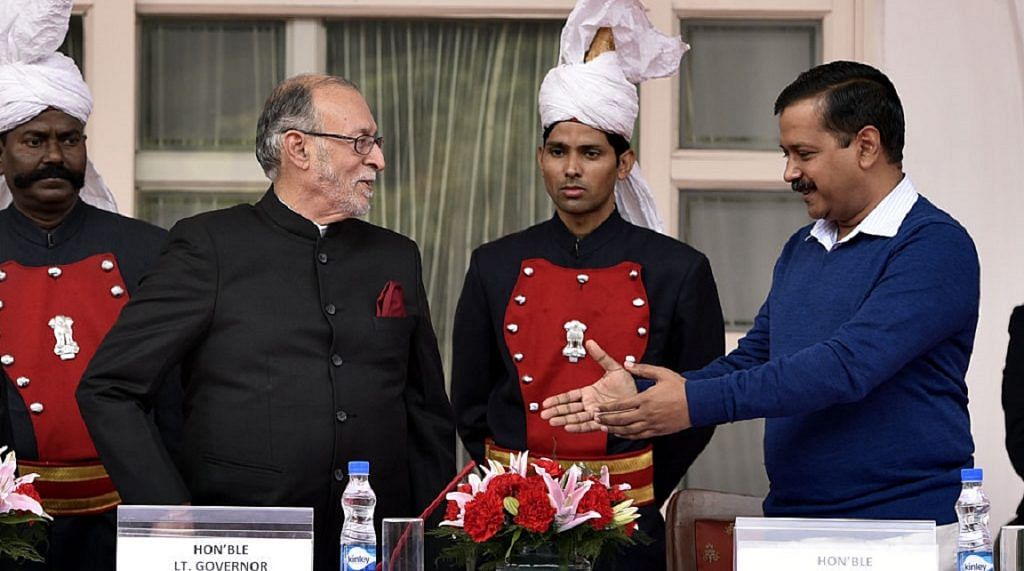In the spirit of federalism, the central government could have asked the Delhi government to seek post-facto approval for the posts that were created.
The general administrative department of the Government of the National Capital Territory of Delhi has cancelled the appointment of nine advisers to various ministers in the Aam Aadmi Party government on the premise that the creation of posts and their appointments to these posts was illegal.
And what was the illegality? That “no prior approval of the central government” was taken before appointing the nine advisers, a mandatory requirement, it seems, under an order issued by the union ministry of home affairs in 1997.
The decision certainly could have been avoided, especially since the matter is likely to be settled by the Supreme Court.
A final decision on who — the AAP government in Delhi or the BJP-led government at the Centre — is right may be settled once the Constitution bench of the Supreme Court delivers its judgment. The plea was filed by the Arvind Kejriwal-led AAP government, challenging the Delhi High Court judgment holding that the Lieutenant-Governor of Delhi was the administrative head and was not bound by the aid and advice of the council of ministers.
However, from a purely political point of view, the Centre’s “clarification” of 10 April, informing the L-G that the posts of advisers were not among the list of posts approved, will only strengthen the charge of bias often levelled at the Narendra Modi government by Kejriwal and AAP.
Many will wonder, rightly so, that if the Modi government feels so strongly about upholding the spirit of the Constitution and uses old office memoranda (OM) to settle scores with an opposition government, why doesn’t it use similar rules to pull up BJP-ruled state governments when they violate the provisions of the Constitution?
Why, some may wonder, does the Centre allow several important constitutional posts to remain vacant for a long time if it feels so strongly about upholding the spirit of the Constitution?
The growing feeling is that the L-G, appointed by the Centre, keeps behaving like the hand-maiden of the ruling party at the Centre, and helps the AAP play the martyr card, which works well with its core constituency.
It is true that under the Constitution, the “elected” government of the NCT of Delhi is not running the affairs of a full-fledged state. For all practical purposes, some of them listed in an earlier piece, Delhi is a Union Territory with an elected assembly. The Centre, especially the home ministry, needs to consider the possibility that the advisers appointed by the Kejriwal government maybe doing some good.
In the spirit of federalism, the home ministry could have asked the Delhi government to seek post-facto approval for the posts that were created. This would have shown the Centre has been cooperative, especially since post-facto approvals are almost routine rather than an exception in the Modi regime.
But now that the action has been taken, one can only hope that the Supreme Court will finally settle the contentious issue of what powers does a “duly-elected” government really enjoy, and what are some of the things that it can’t do.
